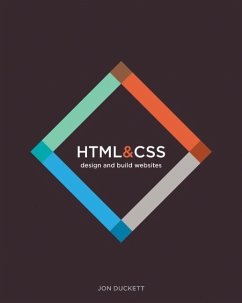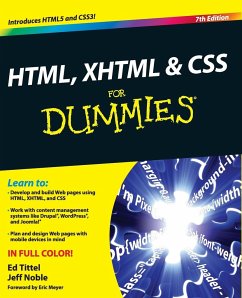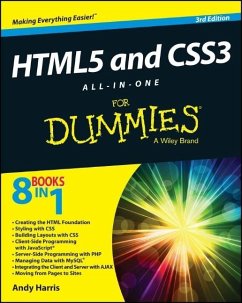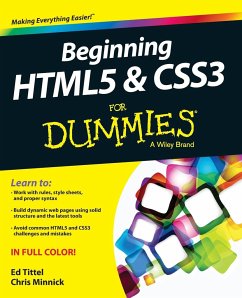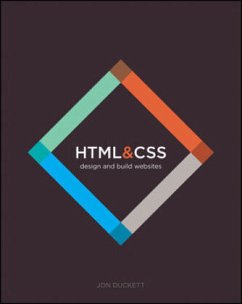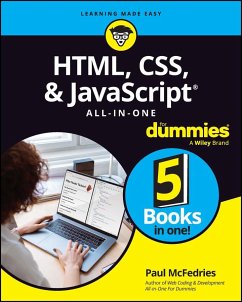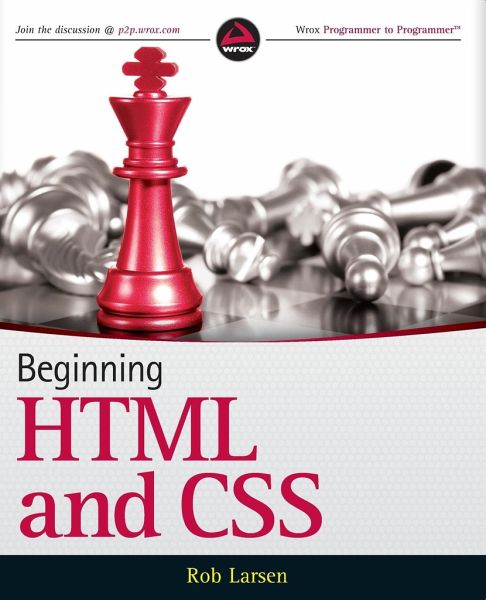
Beginning HTML and CSS
Versandkostenfrei!
Versandfertig in über 4 Wochen
34,99 €
inkl. MwSt.
Weitere Ausgaben:

PAYBACK Punkte
17 °P sammeln!
Everything you need to build websites with the newest versions of HTML and CSSIf you develop websites, you know that the goal posts keep moving, especially now that your website must work on not only traditional desktops, but also on an ever-changing range of smartphones and tablets. This step-by-step book efficiently guides you through the thicket. Teaching you the very latest best practices and techniques, this practical reference walks you through how to use HTML5 and CSS3 to develop attractive, modern websites for today's multiple devices. From handling text, forms, and video, to implement...
Everything you need to build websites with the newest versions of HTML and CSS
If you develop websites, you know that the goal posts keep moving, especially now that your website must work on not only traditional desktops, but also on an ever-changing range of smartphones and tablets. This step-by-step book efficiently guides you through the thicket. Teaching you the very latest best practices and techniques, this practical reference walks you through how to use HTML5 and CSS3 to develop attractive, modern websites for today's multiple devices. From handling text, forms, and video, to implementing powerful JavaScript functionality, this book covers it all.
Serves as the ultimate beginners guide for anyone who wants to build websites with HTML5 and CSS3, whether as a hobbyist or aspiring professional developer
Covers the basics, including the different versions of HTML and CSS and how modern websites use structure and semantics to describe their contents
Explains core processes, such as marking up text, images, lists, tables, forms, audio, and video
Delves into CSS3, teaching you how to control or change the way your pages look and offer tips on how to create attractive designs
Explores the jQuery library and how to implement powerful JavaScript features, such as tabbed content, image carousels, and more
Get up to speed on HTML5, CSS3, and today's website design with this practical guide. Then, keep it on your desk as a reference!
If you develop websites, you know that the goal posts keep moving, especially now that your website must work on not only traditional desktops, but also on an ever-changing range of smartphones and tablets. This step-by-step book efficiently guides you through the thicket. Teaching you the very latest best practices and techniques, this practical reference walks you through how to use HTML5 and CSS3 to develop attractive, modern websites for today's multiple devices. From handling text, forms, and video, to implementing powerful JavaScript functionality, this book covers it all.
Serves as the ultimate beginners guide for anyone who wants to build websites with HTML5 and CSS3, whether as a hobbyist or aspiring professional developer
Covers the basics, including the different versions of HTML and CSS and how modern websites use structure and semantics to describe their contents
Explains core processes, such as marking up text, images, lists, tables, forms, audio, and video
Delves into CSS3, teaching you how to control or change the way your pages look and offer tips on how to create attractive designs
Explores the jQuery library and how to implement powerful JavaScript features, such as tabbed content, image carousels, and more
Get up to speed on HTML5, CSS3, and today's website design with this practical guide. Then, keep it on your desk as a reference!




